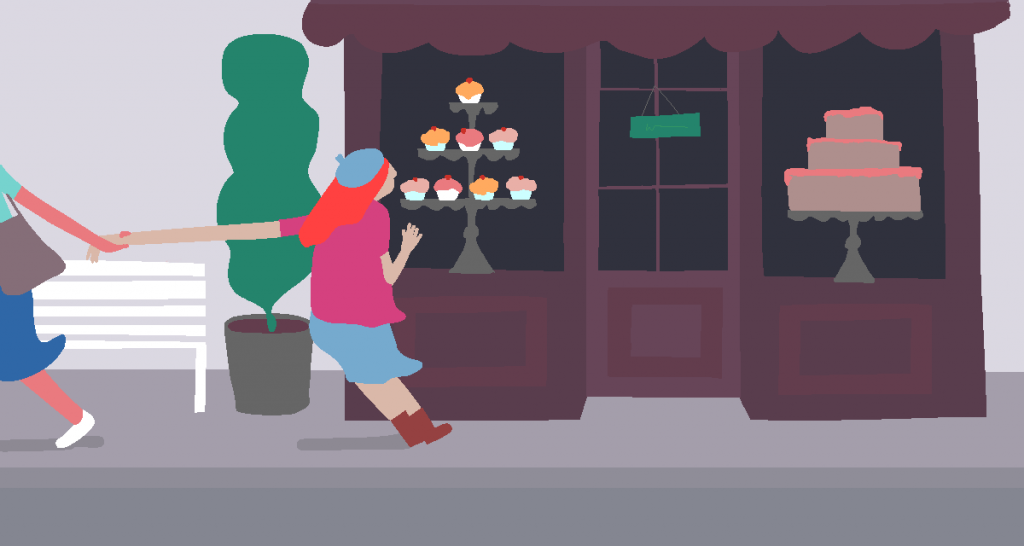Reduce sugar, found in sweets, candies, pastries and desserts. Try stevia as an alternative and do eat fresh fruit.
Most of us know that sugar is not good for us. Yet many times we turn to sweets for comfort, stress relief, soothing negative emotions or as a reward. It’s too easy – sugary foods are all around us, almost impossible to avoid.
Sugar and Breast Cancer Risk
Researchers long ago discovered an association between a high sugar diet and elevated cancer risk. In 1983 an epidemiological study in 21 modern countries that keep track of morbidity and mortality (Europe, North America, Japan and others) revealed that sugar intake is a strong risk factor that contributes to higher breast cancer rates, particularly in older women. There is also a correlation between high intake of sweets and localized breast cancer in young women. A diet high in sweets has been found to increase breast density – which in turn increases breast cancer risk.
There are several mechanisms through which sugar may contribute to the development of cancer:
- Elevated Insulin and IGF-1. Eating too much sugar, can cause the body to become insulin resistant, meaning it has to churn out more and more of the hormone in order to do its job. It also produces more of a hormone known as insulin-like growth factor (IGF), which stimulates cell growth and inhibits cell death.
- Sugar leads to obesity. Excess sugar goes to the liver, where it is then metabolized. When there is an overload of sugar in the liver, it is converted into fat. This causes a buildup of belly fat and inflammatory cytokines, which can increase your risk for cancer.
- Sugar promotes inflammation, linked to the development of cancer. Many of the foods we eat promote inflammation, including meat, dairy, peanuts, sugar, the nightshades, omega 6 oils, saturated (animal) fats, an overly acidic diet and often wheat and yeast.
- Sugar inhibits the immune system. According to a 1973 study done by Loma Linda University, when you eat 100 grams of sugar, about as much sugar as you find in a 1 liter bottle of soda, your white blood cells are 40 percent less effective at killing germs or cancer cells. This can cripple your immune system for up to 5 hours after eating sugar!
- Sweets will promote an overgrowth of unwanted organisms in the intestinal tract, such as candida and parasites. This increases the burden on the immune system.
How to Keep Blood Sugar Balanced
Sugar and sweets are not the only culprit. People don’t realize that even if they don’t add sugar to their foods, hidden sugar, including high fructose corn syrup (HFCS), is in virtually all processed foods, from yogurts and sauces to breads and sodas. Any starch with a high glycemic index increases breast cancer risk.
In order to keep blood sugar balanced it is best to avoid processed foods and choose carbohydrates that have a low glycemic index, such as most legumes, pearl barley, quinoa and green vegetables.
So What About Fruit?
Although fruit contains sugar, many fruits actually have a low glycemic index, and thus do not cause blood sugar to rise quickly. Fruit juice, on the other hand, is stripped of its fiber, and does cause a rise in blood sugar. Fruit contains many vitamins, minerals, antioxidants and phytonutrients that help the body combat disease. Therefore it is advisable to have at least two servings of fruit every day. Low glycemic fruits include apple, pear, plum, apricot, peach, and citrus. Fruits that are especially good for you are all kinds of berries (especially goji), pomegranate and papaya. Avoid or minimize grapefruit – it interferes with your liver’s ability to break down estrogen.
Try this amazing Banana Ice Cream as a healthy dessert.
References:
Seeley S. Diet and breast cancer: the possible connection with sugar consumption. Med Hypotheses 1983 Jul;11(3):319-27.
Duchaine CS, Dumas I, Diorio C. Consumption of sweet foods and mammographic breast density: a cross-sectional study. BMC Public Health. 2014 Jun 26;14:554
Polischman N, Coates RJ, Swanson CA et al. Increased risk of early-stage breast cancer related to consumption of sweet foods among women less than age 45 in the United States. Cancer Causes Control. 2002 Dec;13(10):937-46.
Sieri S, Pala V, Brighenti F et al. High glycemic diet and breast cancer occurrence in the Italian EPIC cohort. Nutr Metab Cardiovasc Dis. 2013 Jul;23(7):628-34.
Tang HJ, Liu WL, Lin HL. Epidemiology and prognostic factors of candidemia in cancer patients. PLoS One. 2014 Jun 5;9(6):e99103
Sanchez A, Reeser JL, Lau HS, et al. Role of sugars in human neutrophilic phagocytosis. Am J Clin Nutr. 1973;26:1180-1184
Gothai S, Ganesan P, Park SY, Fakurazi S, Choi DK, Arulselvan P, Natural Phyto-Bioactive Compounds for the Treatment of Type 2 Diabetes: Inflammation as a Target. Nutrients. 2016 Aug 4;8(8).
Take the Breast Health Challenge!
Cut down on your sugar intake and eat fresh fruit. Take a photo or make a video of you doing it, and post on your Facebook page, Youtube or Instagram with the hashtag #breasthealthchallenge between Oct 1-31. Challenge your friends to do the same. Also enter your email to receive daily tips from the Breast Health Challenge
Sign up to receive daily tips in October: Sign Up
Let’s share what works!
Click here to see all tips
Upcoming Programs
For upcoming Healthy Breast Programs see http://mammalive.net/upcoming-courses/




